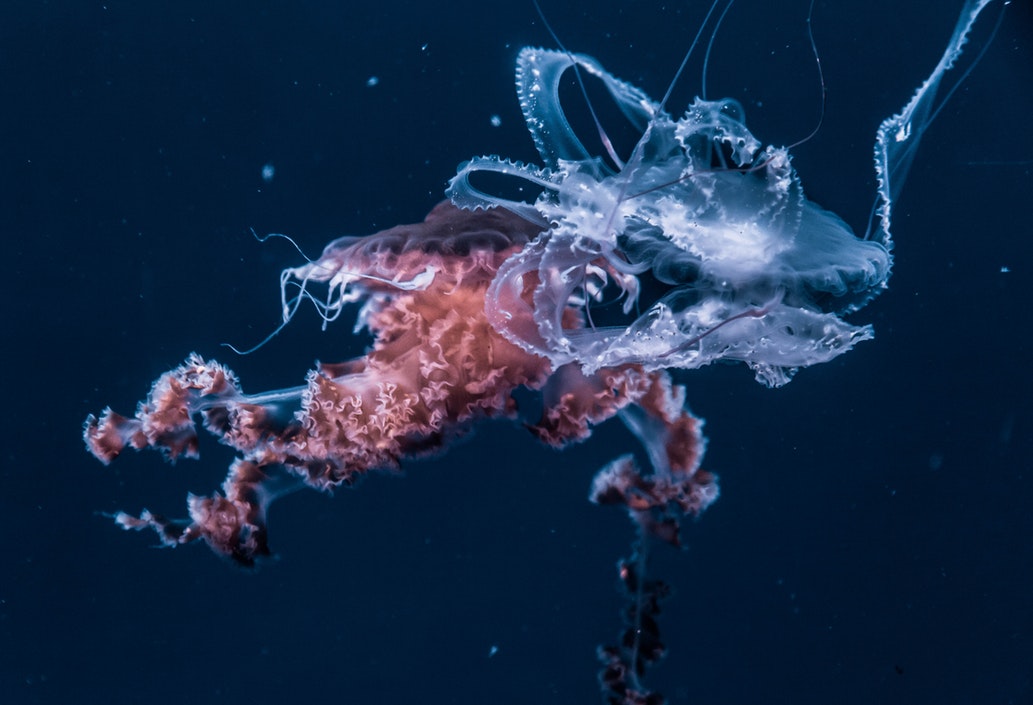Midichloria (pl. midichloria), sometimes known as mitochondria, is a membrane bound organelle found in small percentage of humans, that is responsible for generation of ATP (main source energy of the cell). It is also a semi-autonomous organelle meaning that it has its own genome that shows potent Force capability. Beyond supplying cellular energy, midichloria perform myriad of functions such as Force sensitivity, cell differentiation and signalling.
Ok. I hope that you noticed this sounds fishy. Because it is a hoax. But did you know that nonsense such this was accepted by four scientific journals?! Read on to find out more.

Source
Indeed, publish it, you did
To those of you that do not know that – midi-chlorians are lore from Star Wars (and many fans hate them). They are like the intracellular basis of the ability of certain individuals to use Force – a mystical energy. Because of that the protagonists and antagonists can perform incredible magic-like feats. The most important thing – they are not real.
Nowadays you can read many things on the internet, we have like dozen of miraculous treatments for cancer or you can use special magical crystals to reprogram your DNA and stuff. Is it real? No. So, if you want to find real and evidence-based scientific articles and findings you read scientific journal that publishes only peer-reviewed and relevant articles. Right? Well…. There are journals that claim to be scientific, but in reality, publish almost anything (many times for the right price).

Source
An anonymous scientist called Neuroskeptic (more about him HERE ) decided to exploit some of these “scientific” journals by creating a completely nonsensical article about midi-chlorians. This occurred in July 2017, he sent the article to 9 journals and 4 of them actually accepted it and 3 of those even published it.
Warning signs
An ordinary scientific reviewer would find out really soon that something is not right with the article. If he/she knew Star Wars, then this time would drastically decrease.
First thing – the authors. Neuroskeptic used names of two fictional authors - Lucas McGeorge and Annette Kin. This could be only coincidence, but to me that is the first warning sign.
Next thing – almost the entire article is a mixture of Wikipedia article about Mitochondrion and Midi-chlorians. Then the author rogeted the text, so it really came out ridiculous and absolutely unclear - the author even states this in references and methods section of that article.
Apart from this, let me show you some of these ridiculous parts that should tell you that this article is not scientific at all:
“Given the role of midichlorians as the cell’s force power station, if high-energy dark side electrons leak out, they can form harmful reactive oxygen species.”
“Midi-chlorians are microscopic life-forms that reside in all living cells – without the midi-chlorians, life couldn’t exist, and we’d have no knowledge of the force. Midichlorial disorders often erupt as brain diseases, such as autism.”
“Did you ever hear the tragedy of Darth Plagueis the Wise? I thought not. It is not a story the Jedi would tell you. It was a Sith legend. Darth Plagueis was a Dark Lord of the sith, so powerful and so wise he could use the Force to influence the midichloria to create life.”

Source
Shame, shame, shame!
I am not going to name the journals that did publish it (they had already withdrawn it), but if you are interested, then you can read the original article HERE. Four accepted it, whereas three published it (fourth one would publish it as well, but for great sum of money).

Source
On the other hand, there were journals that did notice that this is clearly hoax and some of them even spotted the joke and requested to add following references: Lucas et al., 1977, Palpatine et al., 1980, and Calrissian et al., 1983 (Star Wars fans will understand).
Conclusion
What does this tell us about scientific journals? Are they useless and irrelevant? Well, no. It is really just a reminder that not all "peer reviewed journals" are really peer reviewed. And you pay not so small amounts of money to get access to many of these journals - because you believe that the product you get is actually reviewed and thus you can trust it (and even build you research based on the findings in such article). But, as with everything it is a business and there are journals that will publish everything for the right price. And for you as a scientist it is sometimes tremendously hard to get noticed – many times actually no one reads or cites the article. Because there are just too many! It is a bit similar with steemit – sometimes it is hard to get noticed (but keep trying!).
The nine journals tested had already had a bad reputation and that was also the reason why they were targeted by the author. And spreading such nonsense really hurts science and scientific community. Maybe it is time to consider changing the system and not making it a business issue. How? I have no clue.
So, guys, I hope you enjoyed reading this article. If yes, then please do not hesitate to support me with upvote, comment or Force high-five.
Have a great day!
References
Predatory Journals Hit By ‘Star Wars’ Sting – Article by Neuroskeptic
Solo H., Bacca C., “You have been tricked”. Journal of the Wills. 2016; 420: 20140698.
Being A SteemStem Member
Downvoting a post can decrease pending rewards and make it less visible. Common reasons:
Submit
@jepper : this is a great lesson for any beginner in science career I think. Nice and relevant article 👍. Resteeming and also upvoted.
Downvoting a post can decrease pending rewards and make it less visible. Common reasons:
Submit
Thanks I am glad you liked it! :) :) And yes, could not agree more.
Downvoting a post can decrease pending rewards and make it less visible. Common reasons:
Submit
This post has received gratitude of 1.20 % from @appreciator thanks to: @jepper.
Downvoting a post can decrease pending rewards and make it less visible. Common reasons:
Submit
imho a lot of scientific journals (sadly) have become pretty much like social media or news website: you need to filter them. Nature, science magazine are my "homepage" for "raw" scientific readings
Downvoting a post can decrease pending rewards and make it less visible. Common reasons:
Submit
Same here- nature and science rule. Would be great to publish there one day, haha :)
Downvoting a post can decrease pending rewards and make it less visible. Common reasons:
Submit
excellente
Downvoting a post can decrease pending rewards and make it less visible. Common reasons:
Submit